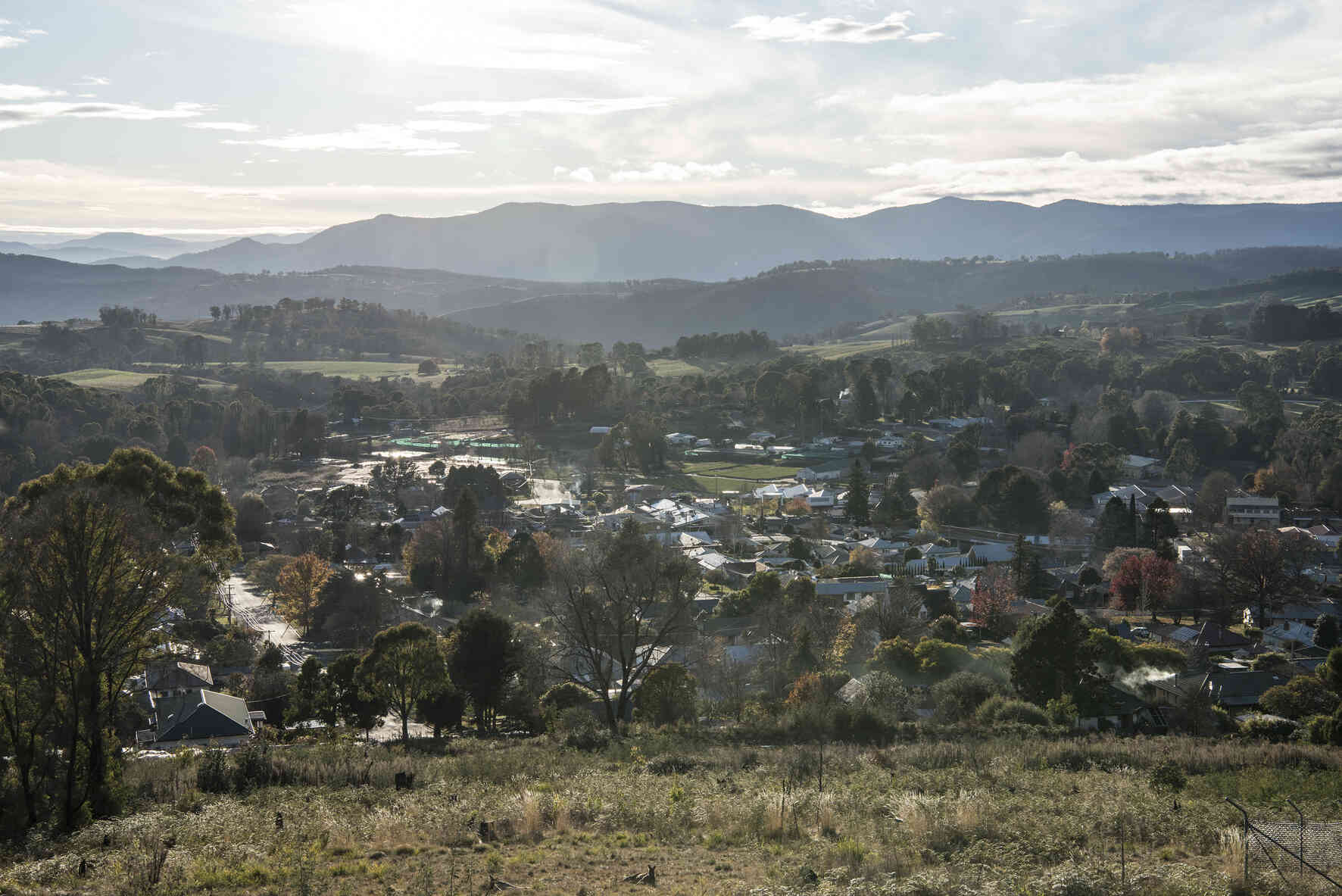
Overlooking the town of Batlow in the Snowy Valleys.
Like other parts of Australia who were affected by bushfire, the children and young people of the Snowy Valleys had different experiences, responses and memories.
It’s something the Be You Bushfire Response Program has helped them not only explore, but use as a springboard for healing – both for themselves and the broader community.
The Program provides targeted mental health and wellbeing support to learning communities affected by the Black Summer bushfires, and empowers communities to lead their own recovery, and to recognise their strengths, levels of resilience and ways of coping.
For the Snowy Valleys, a key part of recovery was creating a community book which brought together hundreds of submissions from children and young people with lived experience of the fires, around four central themes: reflection, growth, nature and resilience.
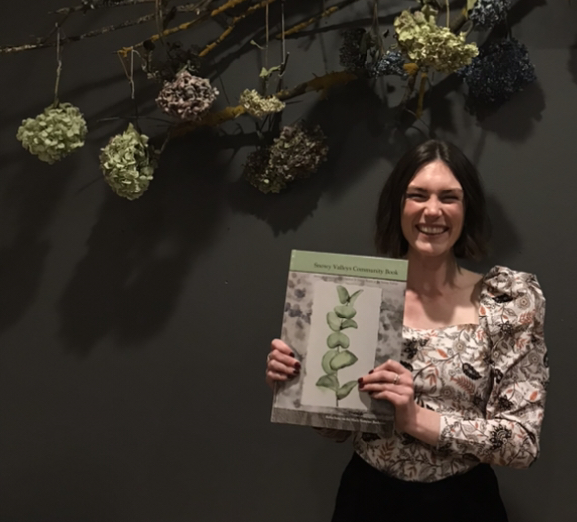
Be You Bushfire Response Program Contact Liaison Officer Sally Hodges at the Snowy Valleys Community Book launch.
“It’s entirely children’s and young people’s work, everything from poems and art to song lyrics, stories and photos,” says Sally Hodges, Be You Bushfire Response Program Contact Liaison Officer (CLO) for the Snowy Valleys.
Sally explains that the book’s concept was raised at an initial meeting of the Snowy Valleys Council’s Be You Working Party, a group that was formed in direct response to Black Summer.
“From the Black Saturday fires in 2009, we knew that children often feel powerless afterwards. Adults try to help by shouldering all of the burden, but that only leaves children feeling a bit helpless,” Sally says.
“Adults can be concerned about re-traumatising children by bringing it up, but we also know that not talking about it leaves children to experience it by themselves.”
“Not only is there something very therapeutic about art, the book is a safe way for adults to talk about the Black Summer bushfires with children. ”
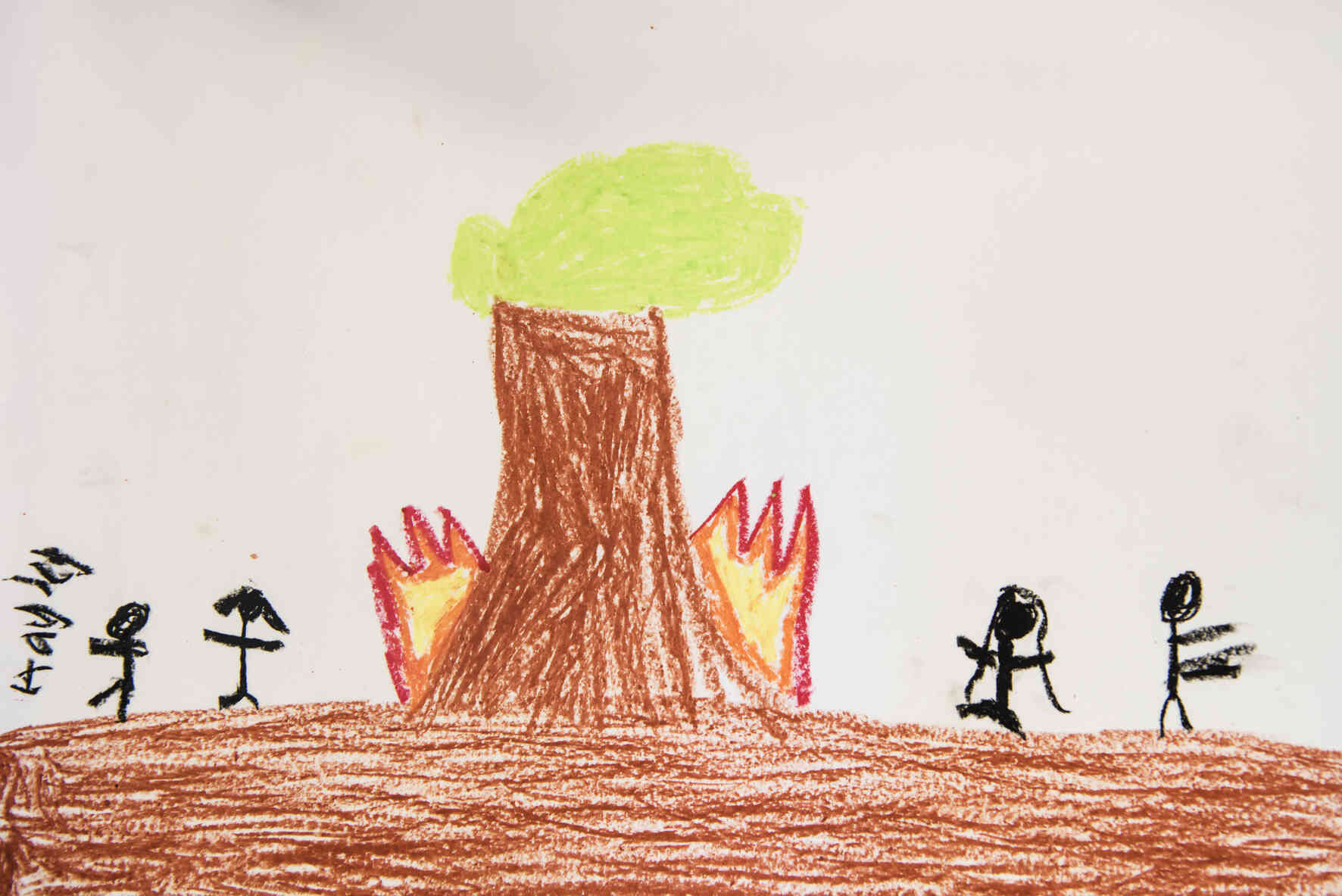
A child's artwork from the community book.
Snowy Valleys Council’s Children’s Services Manager, Kylie Wilesmith, who drove the formation of the council’s all-important Be You Working Party, agrees.
“As well as giving children a voice, the book was also intended to remind early learning services, schools and families that just because the bushfires have been and gone, it doesn’t mean you won’t see trauma in children in years to come,” she explains.
“The book is great to have a platform to allow children to talk about it.”
A listen and learn approach
Renae Pettit is also a Be You Bushfire Response Program CLO working with primary and high schools in the Snowy Valleys.
One of the schools Renae supported was Batlow Technology School.
There she delivered staff wellbeing and trauma guidance and support to educators, working alongside principal Michelle Wainwright.
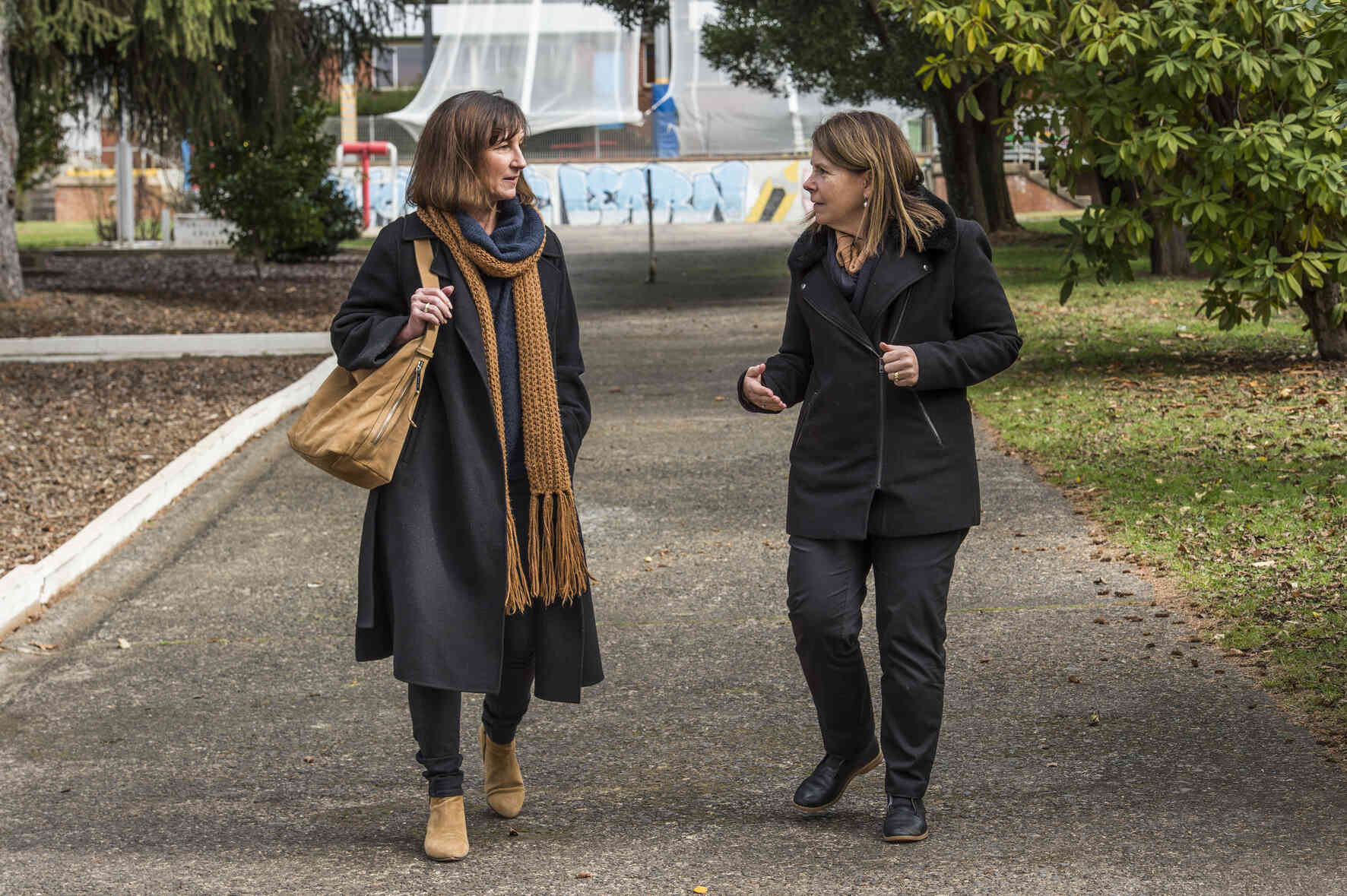
Be You Bushfire Response Program Contact Liaison Officer, Renae Pettit, chats with Batlow Technology School principal Michelle Wainwright.
“The wellbeing workshop gave practical ways to build intentional and incidental self-care into the day,” says Renae.
“This enabled educators to recognise the importance of prioritising their wellbeing so they could, in turn, support students in their learning.”
Her role started with listening, developing relationships and building trust. Both Renae and Sally note that part of that was helping communities identify which services could benefit them, particularly in the very early days.
“It was different for every school,” says Renae.
“But for some, the support was too much too soon – such as when they were still in the immediate crisis-response space and didn’t know what they wanted or needed. It was my role to help them navigate that and say, ‘Let’s see what we can do when it feels best for that to happen’.”
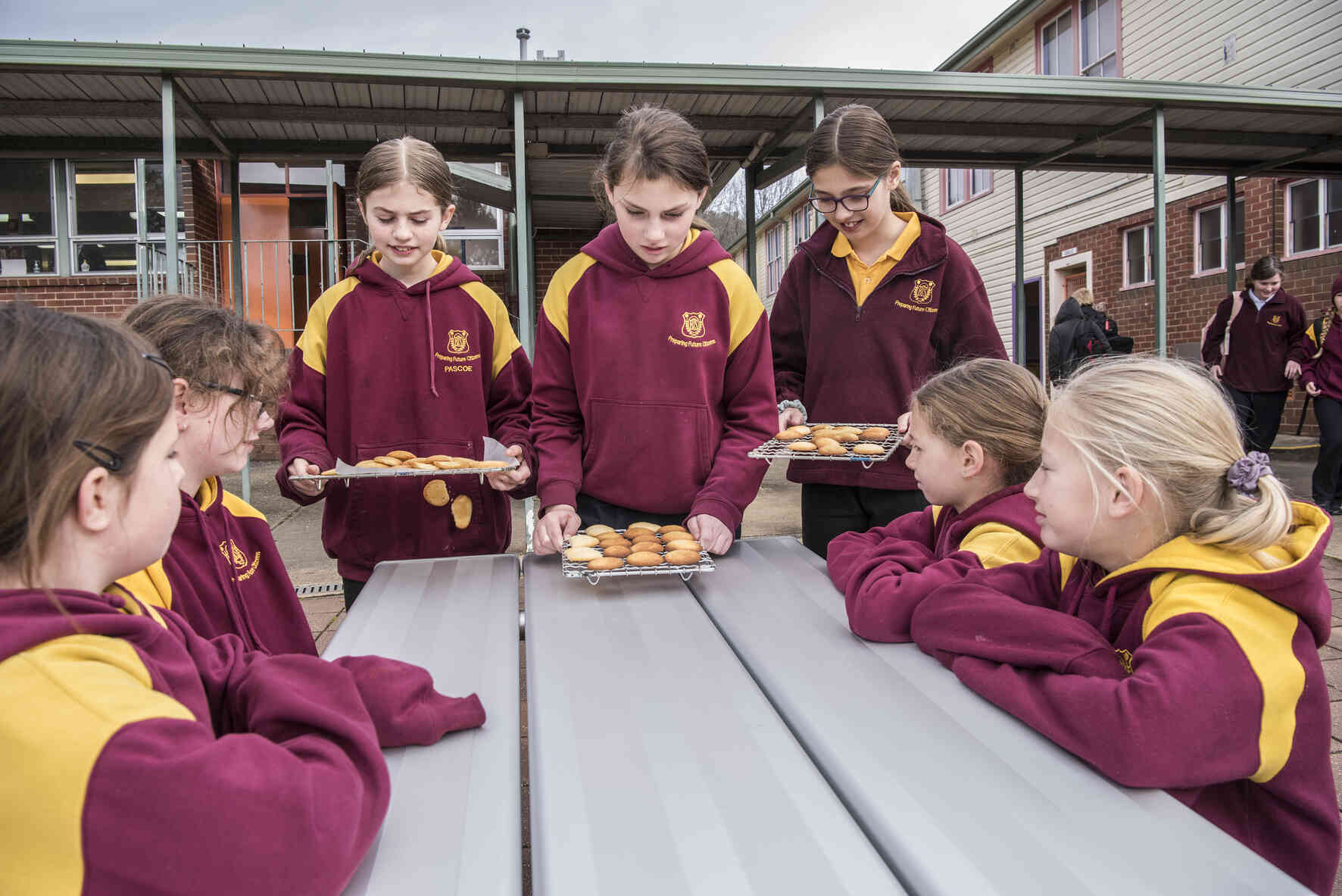
Batlow Technology School primary school students after baking some cookies.
Sally agrees. “Sometimes the school simply needed us to be their filter, to say, ‘These are the support services you may find useful’," she said.
"Whether that was connecting them to online mental health resources, local psychologists, therapists or even GPs – bearing in mind the remoteness of some of these communities – when they were ready.”
For the other learning communities in the Snowy Valleys, the BRP opened doors that may have otherwise remained closed.
“I wish we’d been overrun with offers of support in the early childhood space,” continues Kylie from the perspective of Children's Services Manager at the Snowy Valleys Council.
“But to be honest, we felt a bit isolated early on. Just having that connection to the Program, that we could tap into for information and resources so quickly, was incredible.”
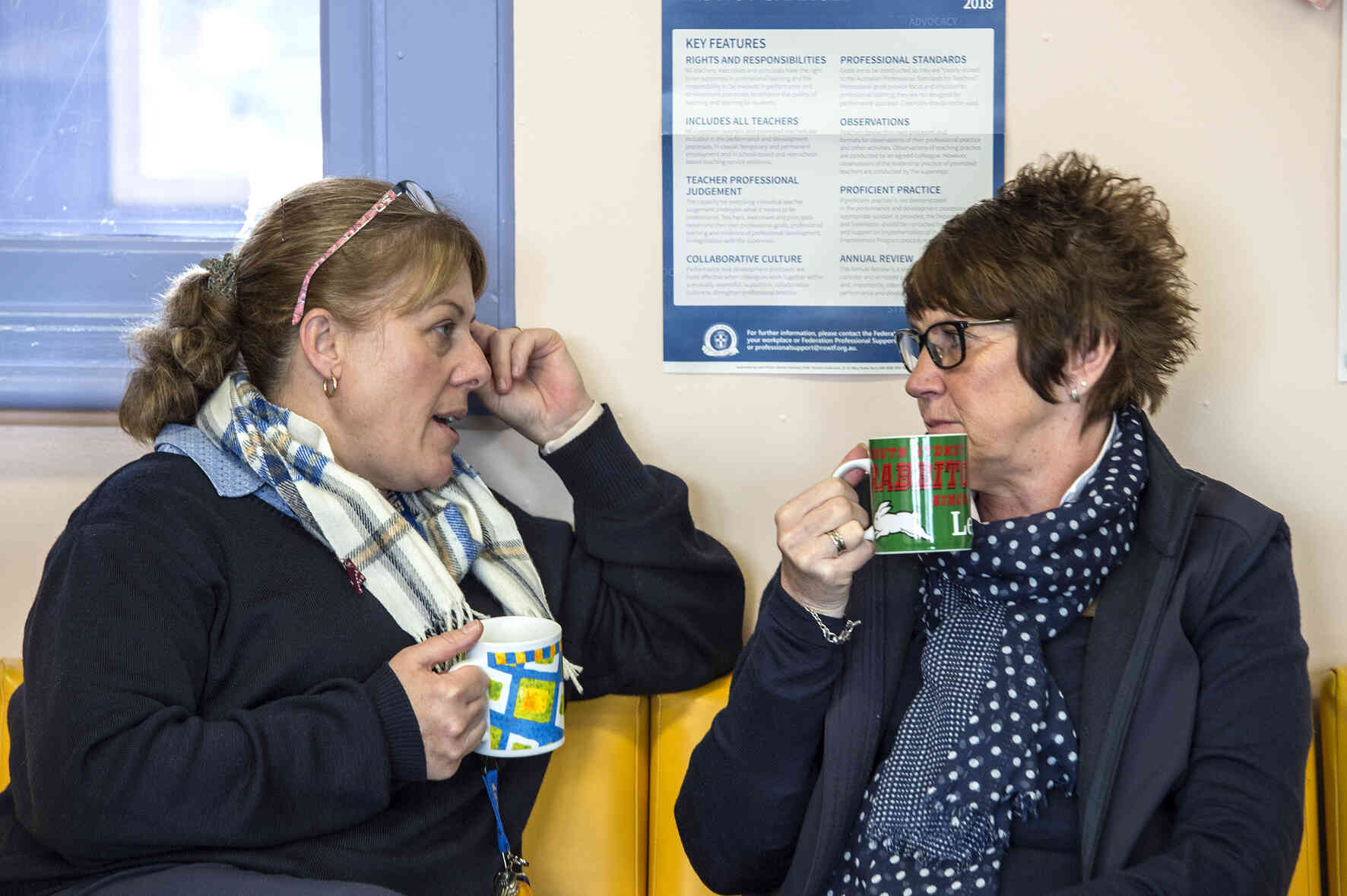
Educators at Batlow Technology School enjoy a cup of tea and chat.
Prioritising wellbeing
Amid the various needs, one avenue of help the Be You Bushfire Response Program offered was consistently used by Snowy Valleys' learning communities.
“The staff wellbeing sessions that we offered as a priority became a bit of a go-to and the uptake was exceptional,” explains Renae.
The Snowy Valleys communities made great use of the resources from Emerging Minds, a Be You Bushfire Response Program partner. Schools and early learning services also use the BETLS Observation Tool, a tool for observing behaviours, emotions, thoughts, learning and social relationships.
“The learning communities were really keen on supporting their staff first and foremost, which was admirable,” says Sally.
“They were happy to invest time into educating staff about self-care, and simply by inviting us into their centres at a time when few people could visit due to the coronavirus pandemic, showed that they respect their staff and their staff’s mental health.”
Kylie says the impact the Be You Bushfire Response Program has had on staff wellbeing sessions in her learning communities has been immense.
“As educators, a lot of us lived through this traumatic event ourselves and the thing is, if we’re not right, how can we get anything done for the children and families in our communities?” she explained.
That’s why we had a Be You wellbeing day for ourselves as educators to start with, and then another for the broader community on the anniversary of the fires in December 2020.
“We're not specifically trained in trauma, so while we have an understanding, and a lived experience, being able to access professional advice and support for both us and our communities has been incredible. ”
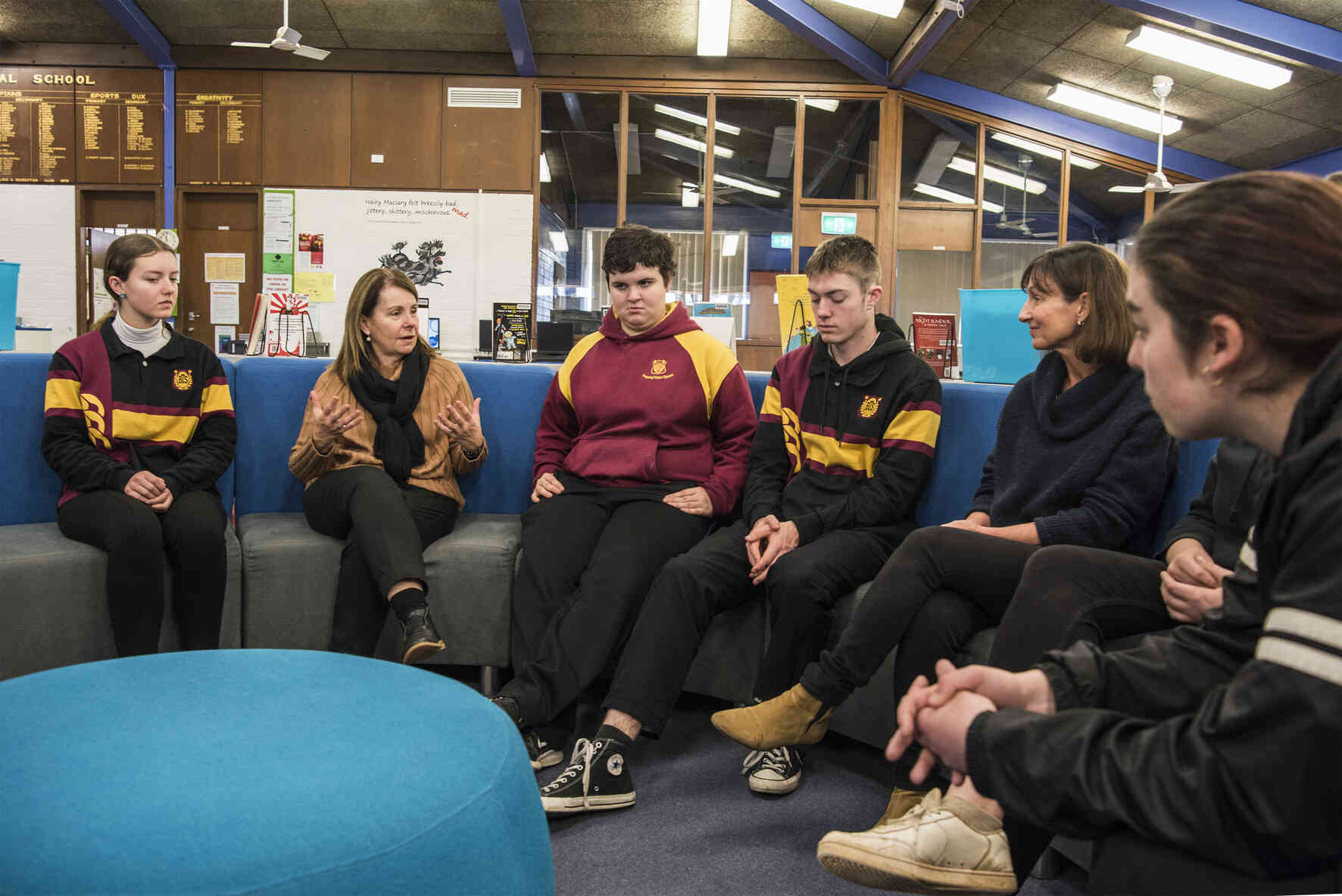
Batlow Technology School secondary school students chat with principal Michelle Wainwright and Renae Pettit.
When schools were ready, the educator wellbeing sessions were followed up by a session on supporting students through trauma-sensitive approaches.
“This was also well received,” said Renae.
“We found that many educators in the Snowy Valleys community are intuitive in their care of students in challenging times.
"They know the value of relational practice, creating safe and familiar classrooms and supporting students to regulate their thoughts and emotions.”
Reflecting on why the Snowy Valleys community needed help from the Be You Bushfire Response Program team, Kylie adds: “I think the response we’ve had from children and young people wanting to contribute to the community book speaks for itself,” she says.
“We had more than 300 submissions, so if that’s a reflection of need, it’s huge.”
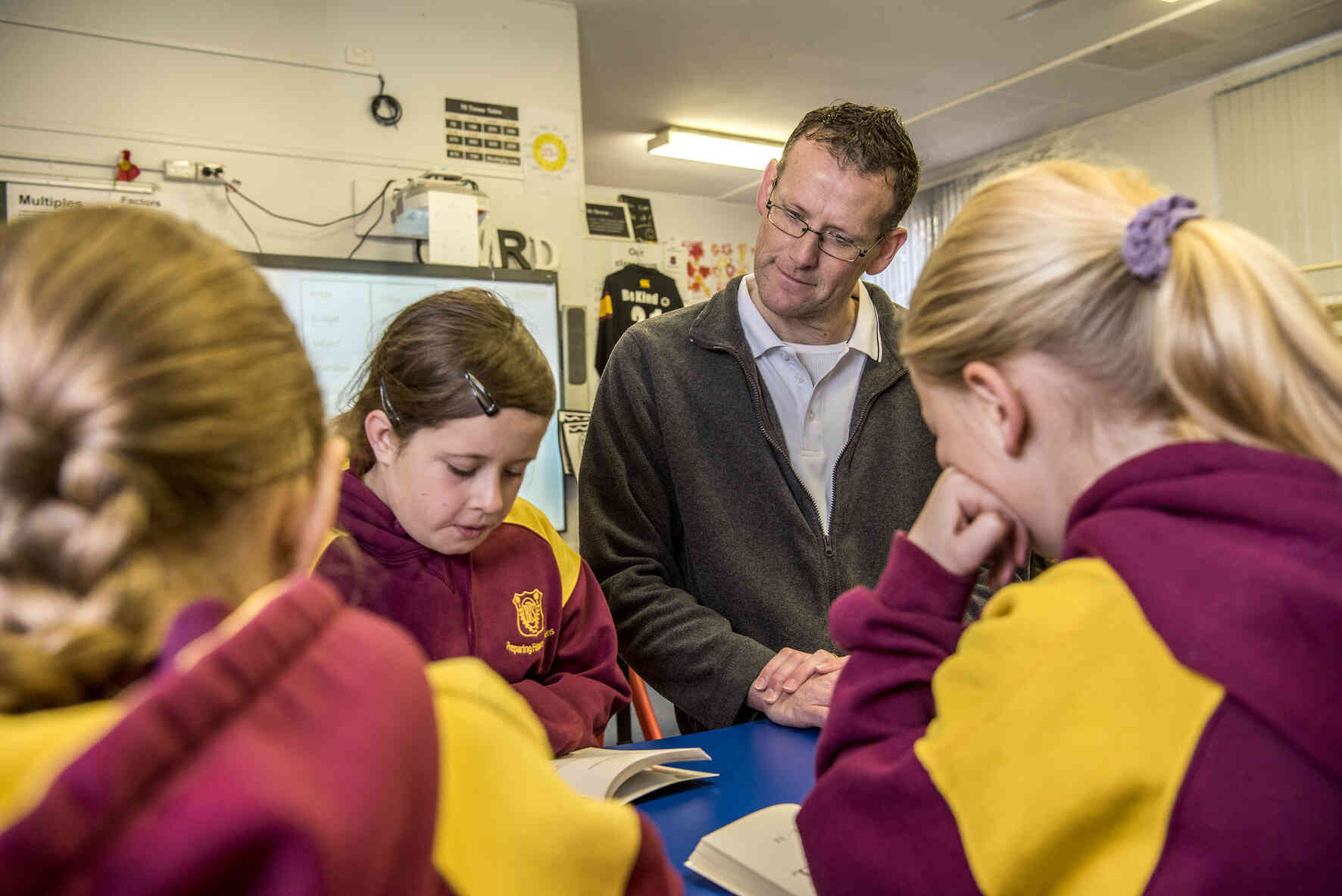
Batlow Technology School educator reads with primary school students.
Find out more about how Be You can support your learning community to prepare for and recover from critical incidents and disasters, or access the Be You Bushfire Response Program webinars.
Correct at time of publication.